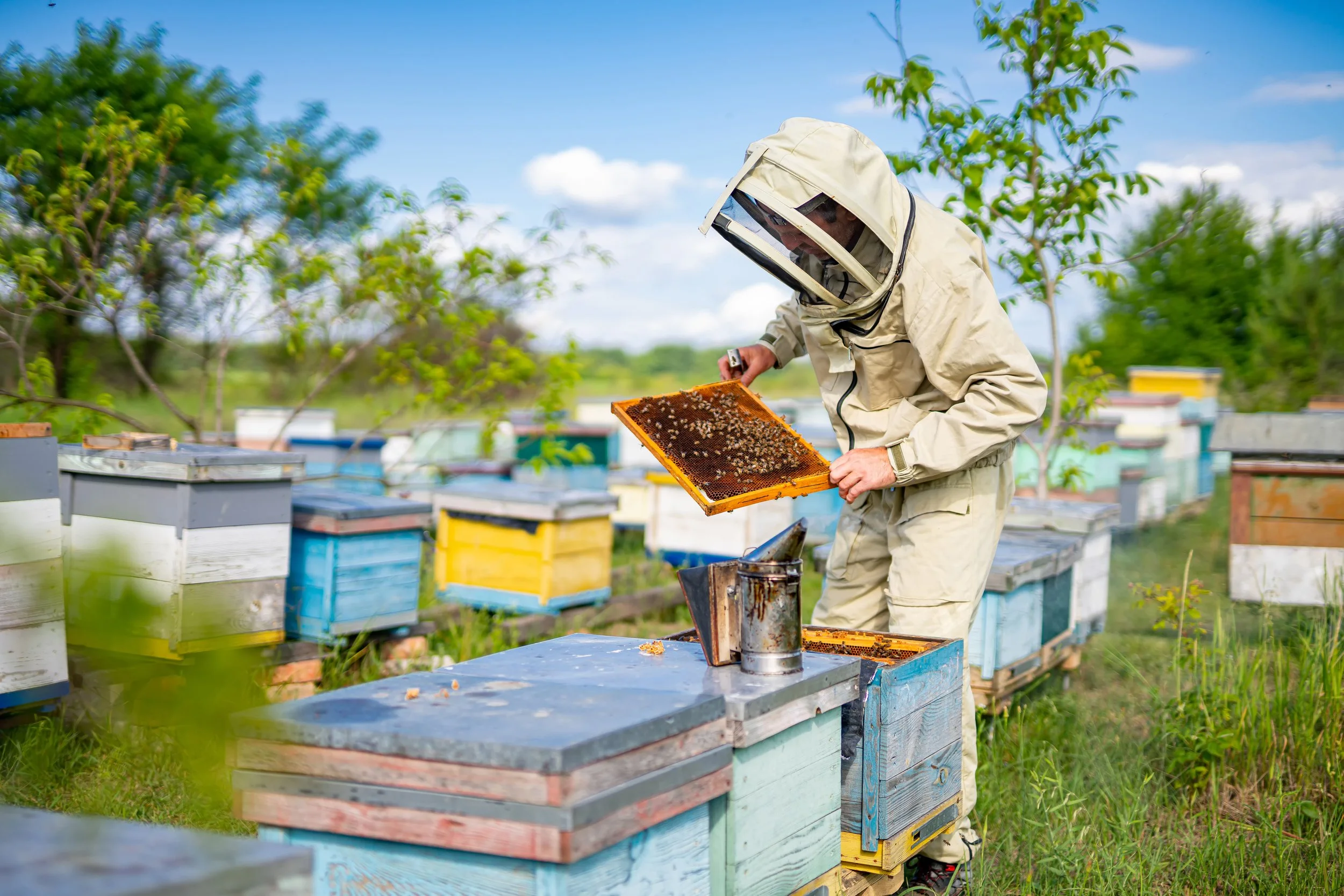What to Look Forward to in the Bee World: Trends and predictions for next year
Dena Kennedy
As we look towards the new year, there’s much to be excited about in the world of bees. Here are some trends and predictions for what we might see in the upcoming year:
Sustainable Beekeeping Practices
The move towards sustainable beekeeping practices is a significant trend in the bee world. This approach prioritizes the health and wellbeing of bees over commercial benefits. Sustainable beekeeping involves minimizing the use of chemicals in managing hives, allowing bees to build natural comb structures, and avoiding practices like clipping the wings of queen bees. More beekeepers are adopting 'no-treatment' strategies and focusing on breeding bees that can naturally resist pests and diseases. This shift not only contributes to the health of individual colonies but also supports broader ecological balance.
Innovative Beekeeping Technology
Technological innovation in beekeeping is set to continue, with new tools and systems being developed to help beekeepers manage their hives more effectively. Advanced hive monitoring systems, which can track temperature, humidity, hive weight, and even sound patterns, are becoming more prevalent. These tools allow beekeepers to monitor the health of their hives remotely, intervening only when necessary. Other innovations include automated honey extraction systems and apps that help beekeepers diagnose and treat common hive issues. These technologies make beekeeping more accessible and efficient, particularly for those managing multiple hives.
Urban Beekeeping Growth
Urban beekeeping is likely to continue its upward trend. City environments can offer a surprising variety of nectar and pollen sources throughout the year. Urban beekeepers are finding innovative ways to keep bees in small spaces, such as rooftop gardens, balconies, and community parks. This trend is not only about honey production; it's also about biodiversity, education, and connecting urban communities with nature. As urban beekeeping grows, it also brings new challenges, like managing bee populations in dense areas and educating the public about coexisting safely with bees.
Educational Initiatives
There's an anticipated increase in educational programs related to bees and pollination. Schools and community organizations are recognizing the importance of early education about bees. These programs often focus on the role bees play in our ecosystem, the basics of pollination, and the challenges bees face. They may include hands-on activities like building bee hotels or planting pollinator gardens. These initiatives are crucial for fostering a new generation of environmentally conscious individuals who understand and value the role of bees.
Bee-Friendly Policies
On the policy front, there's a growing movement to enact legislation that protects pollinators. This includes restricting or banning the use of certain pesticides known to harm bees, such as neonicotinoids. There's also a push for policies that support habitat conservation, such as preserving wildflower meadows and implementing pollinator-friendly landscaping in urban planning. These policies reflect a growing recognition at the governmental level of the importance of bees to our environment and food systems.
Each of these areas highlights the dynamic and evolving nature of beekeeping and bee conservation. As interest in bee health and sustainability grows, we can expect continued progress and innovation in these fields.

